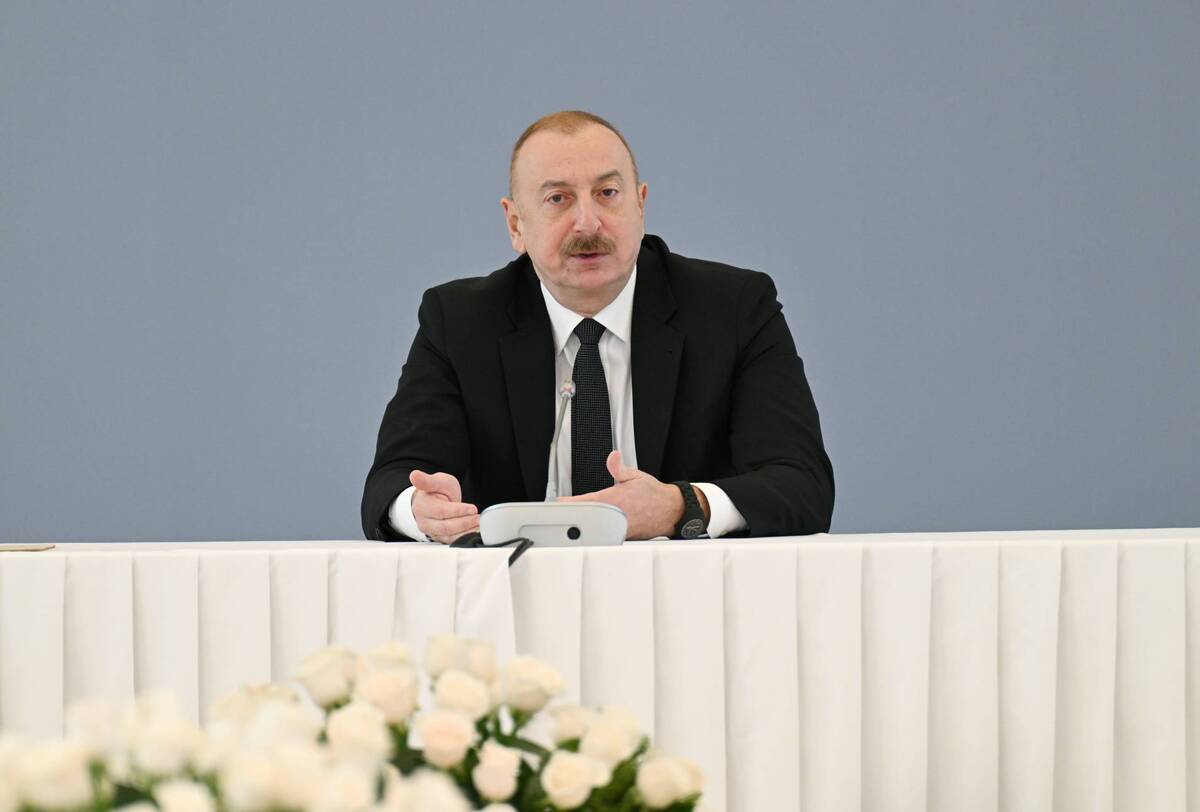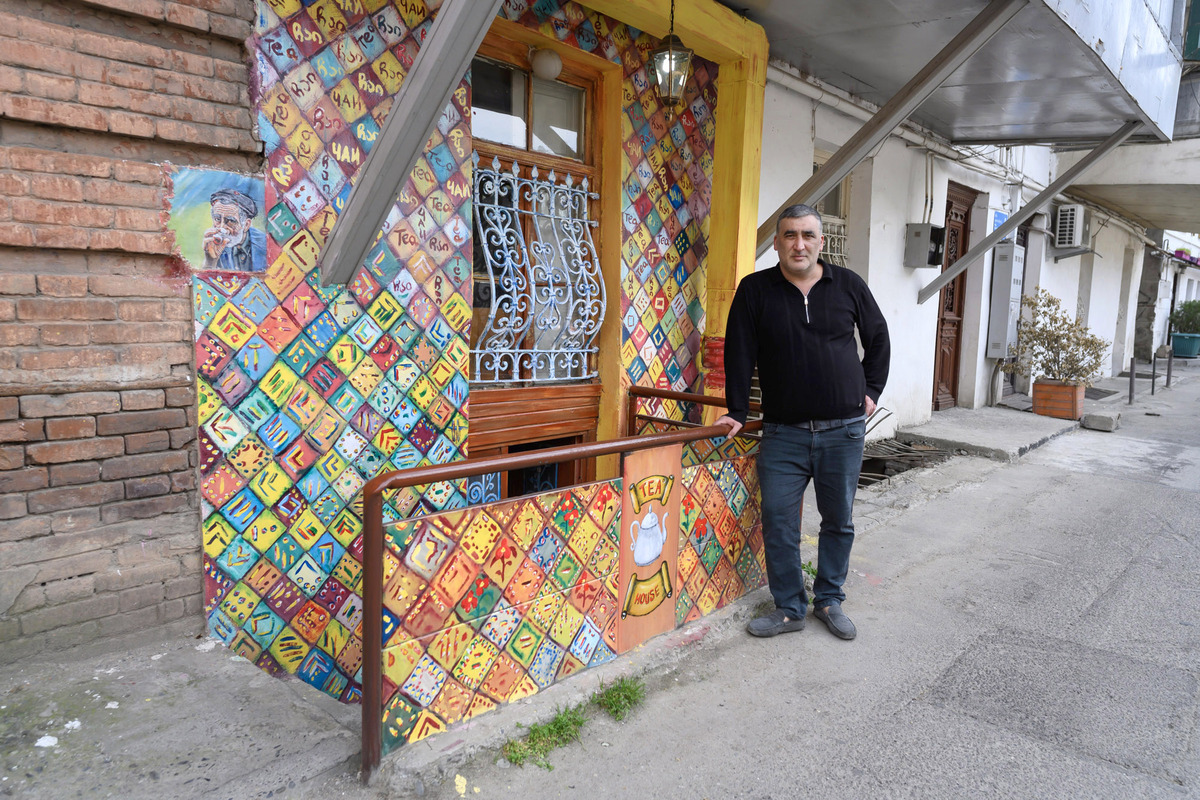- Home
- Beyond Borders: Parajanov Centennial Marked in Yerevan and Tbilisi
Beyond Borders: Parajanov Centennial Marked in Yerevan and Tbilisi
This year marks the hundredth anniversary of the birth of legendary ethnic Armenian film director Sergei Parajanov. Very much a child of the South Caucasus, Parajanov’s work encompassed Armenian, Azerbaijan, Georgian, Moldova, and Ukrainian influences, with his legacy living on today.

Image: Wikimedia Commons
Last week marked the 100th anniversary of the birth of renowned Soviet-era film director Sergey Parajanov. Born on 9 January 1924 in Tbilisi, Georgia, to ethnic Armenian parents, Parajanov’s character was rooted in the city of his birth, while his own influence and legacy has reached far and wide. “I was born in Georgia, worked in Ukraine, and I am going to die in Armenia,” Parajanov said in a 1988 interview.
Parajanov passed away from cancer in Yerevan on 20 July 1990. Best known for 1969’s The Colour of Pomegranates, which is based on the life of 18th-century ethnic Armenian bard and poet Sayat Nova, his legacy continues even today. Even though he never got to live in it, his house museum opened a year later with his childhood belongings and home furnishings transferred to Armenia from Georgia.
"In the temple of cinema, there are images, light, and reality,” French Director Jean-Goddard said of The Colour of Pomegranates. “Parajanov was the master of that temple.” Madonna and Lady Gaga also released music videos based on Parajanov’s work in 1985 and 2015, respectively. Forever crossing borders, his last film was 1988’s Ashik Kerib, shot in Baku.
It came as Armenia and Azerbaijan descended into full-scale war in the early 1990s, but despite criticism in Yerevan for doing so, Parajanov nonetheless also insisted on filming Ashik Kerib in the Azerbaijani language. “[…] he really was the child of the great Caucasian culture, where Christian and Muslim, worldly and spiritual are tightly intertwined and mixed," the film’s cinematographer, Albert Yavuryan, recalled in an interview, “He adored this culture.”
Azerbaijani composer Javanshir Guliyev also provided the soundtrack with a contribution from renowned mugham singer and musician Alim Qasimov. “Parajanov was a true artist because he left politics aside,” said Qasimov in a 2014 interview. “I thank Allah that fate meant I met such a person,” said Guliyev. “[…] he was a great artist, a very original person, and a unique director."
Though rarely spoken about in Armenia, a 9 January event to mark this year’s centennial included Ashik Kerib, among other select works by Parajanov, such as The Colour of Pomegranates, the Ukrainian Shadows of Forgotten Ancestors and Georgian The Legend of Suram Fortress. The event, supported by the Armenian Ministry of Education, Science, and Culture, included an unveiling of his statue.
Another statue has stood in Tbilisi since 2004, and Kote Meskhi Street, where he grew up, was officially renamed after Parajanov in 2022. Therefore, it comes as no surprise that the Armenian and Georgian capitals held other events to mark the anniversary.
An event supported by the Armenian Embassy in Tbilisi took place immediately after one hosted by the Tbilisi City Council on the same day. On 14 January, Tbilisi’s Akhmeteli Theatre also staged a play in his honour while a conference on Parajanov was due to be held from 16 January at Ilia State University.
“Parajanov was driven by the power of intention to create beauty and surprise the world,” event co-organizer Noumen Art’s George Davitashvili says. “[He] was a huge figure for the region,” added Araik V. Vietinghoff-Scheel, the other co-organizer from the Ikalto Micro Art Residence that seeks to develop a “creative understanding of national and ethnic artistic traditions to facilitate active international exchange."
“The legacy of Parajanov is very important for Armenia, Georgia, and also for all humanity,” Armenian Ambassador to Georgia Ashot Smbatyan told me. “Parajanov is a very special bond between Armenia, Georgia, and humanity. We are talking about Parajanov retrospectively, but we must ask ourselves, who else could be so brave during those times to think so freely?”
Among those attending was Georgian musician Tamada, who credits Parajanov as a strong influence in his own work fusing Georgian folk and electronic music together. Ethnic Armenian puppeteer Armen Hohvannisyan, who recently toured the Kvemo Kartli region of Georgia with his own performance celebrating cultural diversity and coexistence, was also present and staged a small show dedicated to the film director.
“Parajanov and my own inspiration comes from Old Tbilisi and the people you can encounter there,” he said of the film director and the melting pot of ethnicity and cultural influence Parajanov was raised in. “He was a genius.”
Read this next






